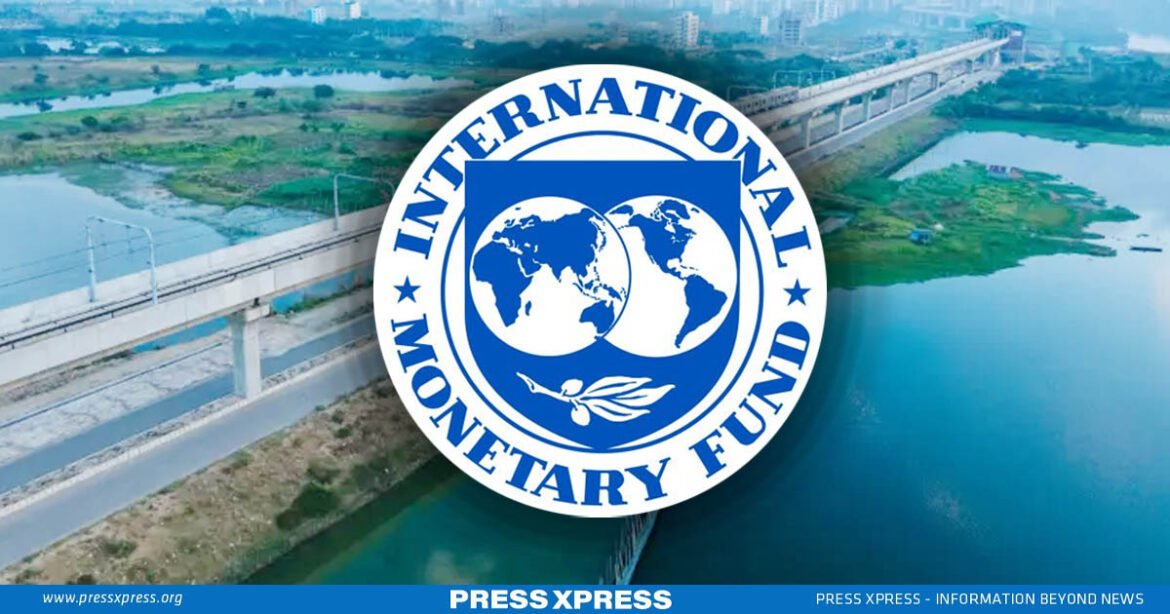The recent agreement and progress made with the IMF signal Bangladesh’s commitment to implementing key reforms and achieving macroeconomic stability
The International Monetary Fund (IMF) has expressed its satisfaction and reached a staff-level agreement on the policies needed to complete the first instalment review, paving the way for the second loan tranche to Bangladesh. This milestone comes after extensive discussions between the IMF and Bangladesh Bank, highlighting the nation’s commitment to meeting its economic obligations.
You Can Also Read: IMF’S FERVENT ENDORSEMENT: BANGLADESH ECONOMY ON RIGHT TRACK
The IMF’s recent announcement reflects the positive outcome of ongoing negotiations between Bangladesh and the international financial institution. A staff-level agreement, subject to IMF management approval and executive board endorsement in the coming weeks, signals a significant step forward in securing financial support and advancing economic reforms.

Conditions for 2nd Instalment
Bangladesh Bank Executive Director and Spokesperson Md Mezbaul Haque has confirmed an agreement reached with the IMF after discussions with their delegation. He expressed confidence in the approval of a $681 million second instalment, citing optimism for approval during the IMF’s board meeting on December 11. Haque also detailed the IMF’s conditions, which include:
- Market-based exchange rates
- Monetary policy modernization
- Risk-based asset disclosure
- Calculating reserves, IMF’s methodology (BPM6)
- Market-driven interest rates
- Increased revenue collection
While acknowledging deficits in reserves and revenue, he highlighted the IMF’s satisfaction with their efforts to address these issues.
Additionally, potential policy rate adjustments and inflation reduction to 8% were mentioned.
IMF Affirms Staff-Level Agreement and Economic Priorities in Bangladesh
Typically, IMF staff teams provide preliminary findings following their country visits at the conclusion of their missions.
It stated that the IMF has achieved a staff-level agreement concerning the first review under various facilities, including the extended credit facility, extended fund facility, resilience and sustainability facility, along with the completion of the 2023 Article IV Consultation with Bangladesh.
It is crucial to note that the viewpoints articulated in this statement solely represent the opinions of the IMF staff and may not necessarily reflect the perspectives of the IMF’s executive board.
Despite challenges, Bangladesh Bank maintains optimism that the IMF will grant approval for the second instalment of its $4.7-billion loan on December 11, ( 2023).
The IMF also underscores the necessity of monetary tightening, complemented by a balanced fiscal policy and an increased exchange rate flexibility, to reinstate immediate-term macroeconomic stability.
Underlining its commitment, the IMF program will persist in supporting the authorities’ endeavors to safeguard macroeconomic stability, protect the vulnerable, and expedite economic reforms while addressing environmental and climate concerns.
Notably, the IMF’s mission team, led by Rahul Anand, convened in Dhaka from October 4 to 19, where extensive discussions centered on economic and financial policies within the context of the first review of the IMF’s Extended Credit Facility (ECF), Extended Fund Facility (EFF), Resilience and Sustainability Facility (RSF), and the 2023 Article IV consultation.
Economic Projections and Revenue Focus
The IMF’s projections suggest a growth rate of 6% in FY23-24, with a simultaneous moderation in inflation to 7.25% by the end of FY23-24. Efforts to increase foreign exchange reserves gradually are on the horizon, but uncertainties and risks remain prevalent.
“The authorities have achieved significant progress in implementing structural reforms as part of the IMF-supported program. However, challenges persist. Ongoing global financial tightening, combined with existing vulnerabilities, is posing difficulties in macroeconomic management, leading to pressures on the Taka and foreign exchange reserves,” Rahul Anand stated at the conclusion of their mission to Dhaka.

“In the short term, the key policy priorities should revolve around containing inflation, mitigating the impact of these economic disruptions on vulnerable segments of the population, and bolstering external resilience. We appreciate the decision by the Bangladesh Bank to raise the policy rate by 75 basis points on October 4. Further measured tightening of monetary policy, increased exchange rate flexibility, and prudent fiscal measures will be essential to restore macroeconomic stability,” he added.
The importance of raising revenue is underlined as a critical element to enable social spending and investment. Policy and administration measures to increase Bangladesh’s low tax-to-GDP ratio sustainably, as well as rationalizing subsidies and improving expenditure efficiency, will support these objectives.
Tackling Structural Reforms in the Banking Sector
Discussions have also centered around a structural reform agenda to support Bangladesh’s aspiration to reach upper-middle-income status by 2031. Key areas of focus include expanding trade, attracting foreign direct investment (FDI), enhancing the investment climate, and promoting women’s economic participation to bolster growth potential.

IMF, World Bank, and ADB adjust Bangladesh’s growth expectations
In a recent development, the International Monetary Fund (IMF) has revised downward its economic growth forecast for Bangladesh to 6% for the current fiscal year (2023), a significant reduction from its April projection of 6.5%.
This downward revision closely follows the World Bank’s own adjustment, which lowered Bangladesh’s GDP growth projection to 5.6% from the previously anticipated 6.2% in April this year (2023). The reasons cited for this adjustment included soaring energy costs, import restrictions, a shortage of dollars in banks, and a hesitance to tighten monetary policies. However, in contrast, the Asian Development Bank, in its July outlook, opted to maintain its initial projection of 6.5%.
In conclusion, the International Monetary Fund (IMF) has expressed satisfaction and reached a staff-level agreement with Bangladesh, marking significant progress in securing financial support and advancing economic reforms. This achievement comes after extensive negotiations, highlighting Bangladesh’s commitment to meeting its economic obligations.


